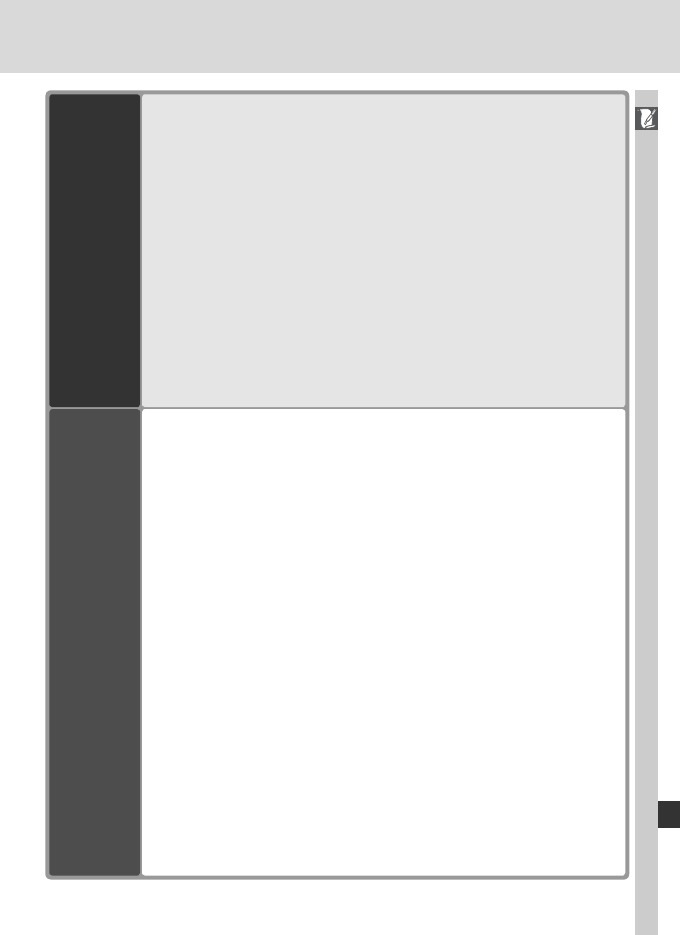
237
Technical Notes—Optional Accessories
Optional
Speedlights
♦SB-800: This high-performance Speedlight has a Guide Number of
53/174 (m/ft, 35-mm zoom head position, ISO 200; GN at ISO 100
is 38/125) and supports i-TTL, TTL, auto aperture (AA), non-TTL auto
(A), manual, and repeating fl ash control. Flash sync mode, includ-
ing slow and rear-curtain sync, can be set from the camera. When
used with the D2Hs, the SB-800 supports Auto FP High-Speed Sync
for sync speeds faster than ½50 s (repeating fl ash mode excluded),
Flash Color Information Communication for optimal white balance,
FV Lock for recomposing photos without changing fl ash level, and
Advanced Wireless Lighting with support for i-TTL, auto aperture,
manual, and repeating fl ash control. The built-in AF-assist illumi-
nator can be used with all of the D2Hs’s eleven focus areas. For
bounce-fl ash or close-up photography, the fl ash head can be rotated
through 90 ° above and 7 ° below the horizontal, 180 ° left, and 90 °
right, while soft lighting can be achieved with the supplied SW-10H
bounce adapter. Auto power zoom (24–105 mm) ensures that the
illuminating is adjusted in accord with lens focal length. The built-in
wide panel can be used for illuminating angles of 14 mm and 17 mm.
An illuminator is included to assist in adjusting settings in the dark.
The SB-800 accepts four AA batteries (fi ve AA batteries when pow-
ered by the supplied SD-800 battery pack) or SD-6, SD-7, or SD-8A
power sources (available separately; see the Speedlight manual for
details). Custom settings are available for fi ne-tuning all aspects of
fl ash operation.
Filters •
Nikon fi lters can be divided into three types: screw-in, drop-in, and rear-
interchange.
Use Nikon fi lters; fi lters man u fac tured by other makers
may interfere with au to fo cus or elec tron ic range fi nd ing.
• The D2Hs can not be used with linear polarizing fi lters. Use the C-PL
circular polarizing fi lter instead.
• The NC and L37C fi lters are recommended for pro tect ing the lens.
•
When using an R60 fi lter,
set exposure compensation to +1.
•To prevent moiré, use of a fi lter is not recommended when the sub-
ject is framed against a bright light, or when a bright light source is
in the frame.
• Color matrix and 3D color matrix metering may not produce the de-
sired results when used with fi lters with an exposure factor (fi lter fac-
tor) over 1 × (Y44, Y48, Y52, O56, R60, X0, X1, C-PL, ND2S, ND4S,
ND4, ND8S, ND8, ND400, A2, A12, B2, B8, B12). We recommend
center-weighted metering. For details, see the manual provided with
the fi lter.


















